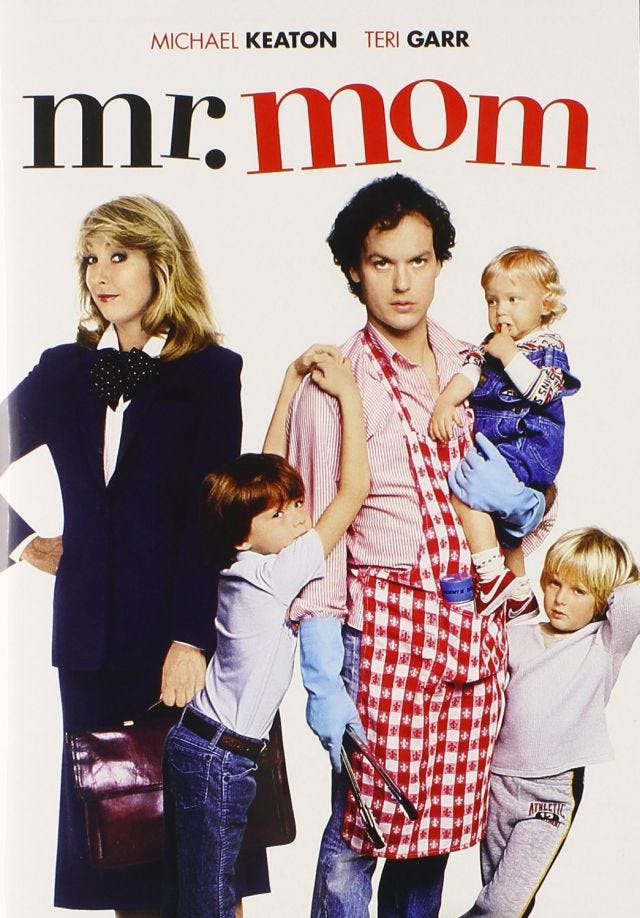So What, Who Cares (vol 2, issue 103) How Target is shaking up the aisles, dads are shaking up the wage gap
Hello! I had way, way too much fun this weekend and that is why this newsletter was not in your inbox this morning. So let's do some quick hits off previous stories we've all been tracking in this newsletter. Are there any stories you'd like to see more coverage on? Ping me via Twitter or email.
*
Target is taking a stand against gender contamination. From the corporate press site:
[S]hopping preferences and needs change and, as guests have pointed out, in some departments like Toys, Home or Entertainment, suggesting products by gender is unnecessary.
We heard you, and we agree. Right now, our teams are working across the store to identify areas where we can phase out gender-based signage to help strike a better balance. For example, in the kids’ Bedding area, signs will no longer feature suggestions for boys or girls, just kids. In the Toys aisles, we’ll also remove reference to gender, including the use of pink, blue, yellow or green paper on the back walls of our shelves. You’ll see these changes start to happen over the next few months.
Where have you seen this before? In vol 2, issue 97, we bottomed out the costs of segregating products by gender.
*

I'm not saying I can predict the future, but I did note in last December in vol 1, issue 70, "2015 may be the year paternity leave breaks big in managerial circles."
And here we are: the New York Times has a lengthy and well-reported column on how Mark Zuckerberg's (purely hypothetical at this point) parental leave could foster a culture change and de-stigmatize taking paternal leave and New York magazine's superb Annie Lowrey points out that paternity leave could also be one way in which the persistent gendered wage gap is bridged.
Worth noting: Taking paternity leave is also really good for overall family well-being because it makes for stronger marriages.
Where have you seen this before? I went beyond the quip and began looking at the increased demand for parental leave in: vol 1, issue 4 (which was all men-in-the-workplace, all the time); vol 2, issue 21 (which notes that in Rhode Island, men are crushing it on the paid family leave); vol 2, issue 35 (which tracked men's increasing dissatisfaction with modern workplace culture).
*

Adobe has joined the ranks of tech companies coming to terms with the radical notion that parents may want time off with their new children. They'll be offering 16 weeks of paid leave to "primary caregivers" of children (note that this covers adoptive and biological primary caregivers), plus another ten weeks of paid time off after surgery, childbirth, medical emergency or illness. So, in theory, women who give birth and are their baby's primary caregiver can have up to 26 weeks of paid leave; nonprimary caregivers get 14 weeks of paid leave. Also notable in this policy: employees get four weeks of paid leave if they're acting as a caregiver to any family member in need. This is the first time I can remember seeing a tech company acknowledging another very necessary aspect of family life, caregiving for sick loved ones.
Where have you seen this before? In vol 2, issue 102, I provided a rundown of known tech companies' policies; I went in-depth on the Netflix announcement in vol 2, issue 101; I've done other parental-leave coverage in vol 2, issue 35; vol 1, issue 41; vol 1, issue 18.
Also, I've covered caregiving as a growing workplace, life and economic concern in vol 2, issue 33.
*
Your pop-culture note of the day: Flavorwire has a nice write-up of different comic books that "tell women's stories," and because a few of the items are by male creators, I feel pretty comfortable recommending three more that weren't included in the roundup.
The first is a retread of a recommendation I made in vol 2, issue 42: Jinx by Brian Michael Bendis. It's a darkly funny noir and the art matches the story beautifully.
The second: Terry Moore's Strangers in Paradise, which is a sprawling, epic story about two friends -- Francine and Katina -- who eventually figure out how to become the life partner the other needs. The story sustains a level of thinky melodrama for 100 straight issues; the writing becomes better, and the characters evolve from tropes to flawed people you root for despite yourself.
Finally, Local by Bryan Wood and Ryan Kelly is one of the most modern and elegant coming-of-age comics I've read. It centers around Megan McKeenan, a young woman with artistic aspirations and a raging case of wanderlust, and each issue covers a year of her life in a different place as she tries to figure out how she wants to be in the world, who she wants to be, and what the real meaning of "home" is. The resolution in the final issue feels earned, and the details for each locale featured pull each city into the book as a character, forcing readers to figure out how much of who we are is shaped by where we are.
*
A NEW MONTH, A NEW FOOTER: Here's a free and easy way to show people you like them -- send them here to subscribe to So What, Who Cares? You can plumb the archives here. You can always reach out to me via Twitter or email. You can go where you want to/ to a place they'll never find/ and we can act like we come from out of this world/ and leave the real one far behind.


